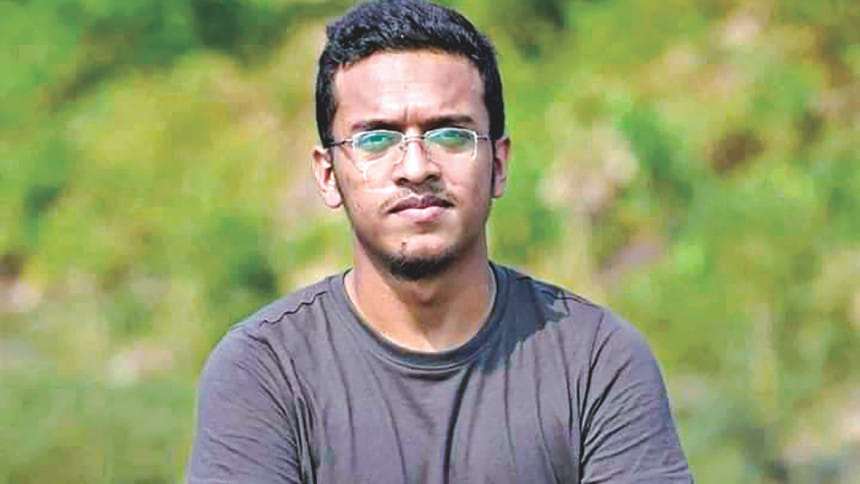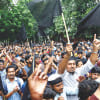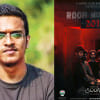Commentary: It’s culture of impunity that killed Abrar

Whenever a gross violation of law occurs, such as Abrar’s killing, ruling party leaders sing in chorus “nobody is above the law” and that “law will take its own course.” The truth is there are people above the law in this country, and the law takes its due course only when there is a “green light”.
For years we, along with other media outlets, have been writing incessantly about the “culture of impunity” that has now become all pervasive and has stymied most institutions of accountability and those upholding the law.
This “culture” saves killers, extortionists, power abusers, the corrupt, wilful bank defaulters, and the like from punishment. Over time such behaviour encouraged and emboldened criminals to commit more gruesome acts of violence with a near certainty that the “law will NOT take its course” in their case. Some members of Chhatra League may have beaten and tortured Abrar to death, but he was actually killed by the “system” that gives impunity to criminals.
Since independence, there have been 151 killings on various campuses with none being punished for those crimes. The usual pattern has been that the student wing of the ruling party of the day would “capture” all the dormitories at every public university and drive out students loyal to their rival parties, mainly confined to BNP’s Chhatra Dal and AL’s Chhatra League.
Activists of the ruling party’s student wing would then abuse, torture and even kill their rivals without ever having to face trial or sentence.
From 1991 to 2006, we saw power alternating between the BNP and the AL with the control of the university dormitories alternating between their student wings. Since the Awami League has been ruling for the last 10 years and has retained power for a third term, its student front’s control over public universities has become “quasi-permanent” with the concomitant changes in their behaviour, lifestyle and attitude towards fellow students.
Most of the top Chhatra League leaders own flats, cars and businesses with signs of opulence literally oozing out from their every move including dishing out favours and cash to their sycophants. As and when they visit the campus, riders on motorbikes clear the road in advance so their leader’s journey is not hindered by the commoners.
According to Buet students, Chhatra League leaders would regularly beat up or “punish” students for not showing due “respect” to them by standing up when they passed or greeting them with proper salutation.
Beatings were inevitable if any student -- especially the newly admitted ones -- did not join any Chhatra League rally or event. One or two slaps was the “kindest” of treatment. They ran a virtual fiefdom right in front of the university administration and the latter did not have the courage to impose the minimum of institutional discipline.
And then the VC has the gall to say “why should I resign? I have done nothing wrong”. He has failed to provide the basic security to his students and protect them, as is now revealed, from regular abuse and even death. Obviously, this learned teacher has not heard of “moral responsibility” or “ethical role” of any head of an educational institution.
If we care to read, there is so much “written” in Abrar’s murder -- the sheer cruelty, the depth of depravity, the gruesomeness of the act, the extent of lawlessness, the sense of being above the law, the world of criminality in which the perpetrators lived and the sense that they held the key to life and death of anybody they laid their eyes on.
The cruelty of the act was mindboggling to say the least. I read and reread the autopsy report which said the “death was caused by internal bleeding and excessive pain.” It was the last two words, “excessive pain”, that have been haunting me from the moment I read them. I pictured Abrar screaming in absolute pain. Did nobody hear him? Inside the university? Impossible. It appears that some did at the beginning and were dissuaded from entering the room. After that Abrar was gagged so that his screams were muffled and nearly inaudible. Even then many must have heard but nobody dared to intervene fearing a similar fate for themselves. Such was the killers’ writ spread over the most prestigious educational institution in the country.
We can picture in our mind’s eye Abrar pleading with his tormentors to stop the incessant beating and give him a moment to breathe. When he could not bear the pain any longer, he must have begged for mercy and for his life. But all his cries, pleading and begging went in vain. And in response, his killers commented “…he is pretending. We can beat him for another two hours.”
Police Sub-Inspector Delwar Hossain visited the hall but was kept waiting for 45 minutes and not allowed to come to Abrar’s aid which could have saved his life.
Delwar spoke to his boss who also did not instruct him to force his way into the room where Abrar’s killing was taking place. Would the police have listened to anyone else but the BCL general secretary? This illustrates how “law takes its own course” and speaks of the power of the killers and the powerlessness of police. It could happen only because police knew well that to move against Chhatra League needed clearance.
According to police, 23-24 Buet students took part in the brutal killing of Abrar. It is quite unbelievable that all of them were so steeped in depravity and so utterly devoid of basic human feelings that they could have continued beating Abrar for four to six hours without a single breath of mercy.
Of them, Anik Sarkar is said to have struck Abrar 200 times with a cricket stump till it broke. For these Chhatra Leaguers beating Abrar mercilessly seemed like a “festivity” of which they all had to have a share. As the beating continued, some went out for a while and returned to resume. It is relevant to remember that the bleeding was not in the brain in which case death would have occurred sooner. The bleeding was internal, which took time to make the vital organs fail.
Two sets of questions must immediately be addressed -- one dealing with the wider social and political atmosphere and the other internal to the universities themselves.
We must ask what has happened to our glorious tradition of student movements that lay at the heart of all our democratic struggles? We know that military dictatorship perverted our students, but why should such aberration occur under civilian rule?
What sort of political environment turns high-performing students into butchers? How long are we going to allow the “culture of impunity” to destroy the fundamental institutions of governance? How long will we allow our basic social and human values to be torn to shreds?
Internal to the universities the questions we must ask is what sort of educational institutions we have created that bring out the worst in our young instead of the best. What education can these institutions provide when basic humanity is lost?
What has happened to the conscience of our teachers who do nothing and do not have the minimum guts to raise their voice even after seeing such brutalities and perversities every day? What can be expected from such givers of “knowledge, wisdom and ethics” when all they can think of is their jobs, promotions, foreign scholarships and possible lucrative consultancies? (The burden of collective shame must haunt all teachers). What can we expect from university administrations that are not willing to guarantee the minimum academic atmosphere for students to study and excel?
As we had said earlier, Abrar’s life was taken away by a few “demons” masquerading as students, but he was actually killed by the system -- a system of impunity, lack of accountability, corruption, abuse of power and flouting of the law.

 For all latest news, follow The Daily Star's Google News channel.
For all latest news, follow The Daily Star's Google News channel. 








Comments